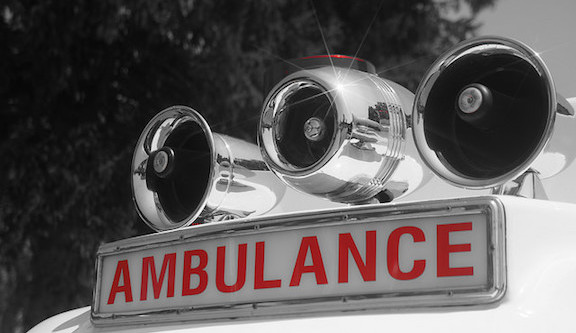Evidence-based EMS suggestions may not add up realistically in practice
We constantly experience challenges in EMS trying to prove that our practices are evidence based and associated with better outcomes. Evidence based medicine is a generally good concept however it infrequently takes into consideration professional experience and clinical judgment. The scrutiny of prehospital practices are important but interpretation of literature should be cautious before changes are made that will impact on patient care. For those of us who have worked in the prehospital setting or provided medical oversight, change must be based upon a balance between science, provider experience and patient experience. Changes in any chaotic setting can have adverse effects if they are not made slowly.
Advanced Life Support (ALS) care is not simply based on interventions or protocols. It is based on additional knowledge of the provider. This increased knowledge base brings a level of care to the patient that is difficult to define by research. We know that good ALS is built on good BLS. Good cutting-edge patient care such as uninterrupted compressions, peep valves on BVMs, decreased use of Bag-Valve-Masks, passive oxygenation and high flow nasal cannulas are concepts that are often brought to the field by ALS providers. Paramedics not only bring ALS skills which may or may not be evidence based, but BLS concepts that are evidence based. ALS treatment protocols are difficult to measure and are rarely studied.
Prehospital outcome studies must continue to evolve. The Research Outcomes Consortium (ROC) databases continue to provide us with important research in patient-specific treatments. However, the change is EMS systems based on outcomes studies need to be tailored to the type of EMS system. Using the one size fits all approach to patient care does not work for such modalities as mechanical vs. manual CPR, and it does not work for the use of endotracheal tubes vs. supraglottic airways. Should BLS providers have Epinephrine, Naloxone, Albuterol, Aspirin and Nitroglycerine. Yes, with good training and good oversight these medications will help patients when delivered sooner. Providing BLS with increased skills is not a threat to ALS, instead it is better patient care. Should all systems allow BLS to do these interventions? Absolutely NOT. In any system without good training and oversight allowing untrained providers to perform traditional ALS skills could lead to increased medical error and potentially present a danger to patients. Increasing available treatment modalities for BLS providers will help patients and in some systems will deliver care faster. For example, try explaining to the short of breath asthmatic who has to wait an additional 20 minutes for an ALS unit that BLS should not have the ability to give albuterol. Waiting for ALS to provide these interventions is not evidence based. Additionally, asking basic life support providers to receive full paramedic training is not possible. Time constraints and the financial impact of paramedic training make this training not possible for many providers. In some systems this might be enough to deliver within the prehospital setting especially when transport times are short. However more knowledge is good. ALS providers often don’t realize how much they did not know as BLS providers until they received advanced training.
The old saying that “if you have seen one EMS system, you have seen one EMS system,” is more valid than ever with these studies. Making utilization decisions of ALS providers based on provider groups instead of specific treatments is not only NON-evidence based, it is irresponsible. ALS and BLS utilization decisions should be based on local protocols, available providers, geography to receiving centers, knowledge base of providers and medical oversight.”
Photo by Mike Steinhoff



